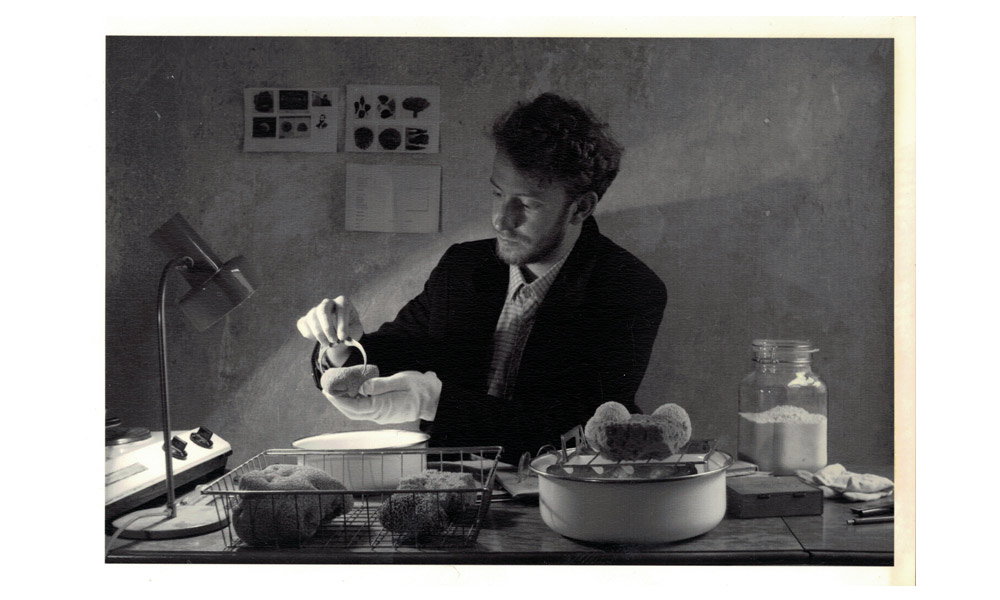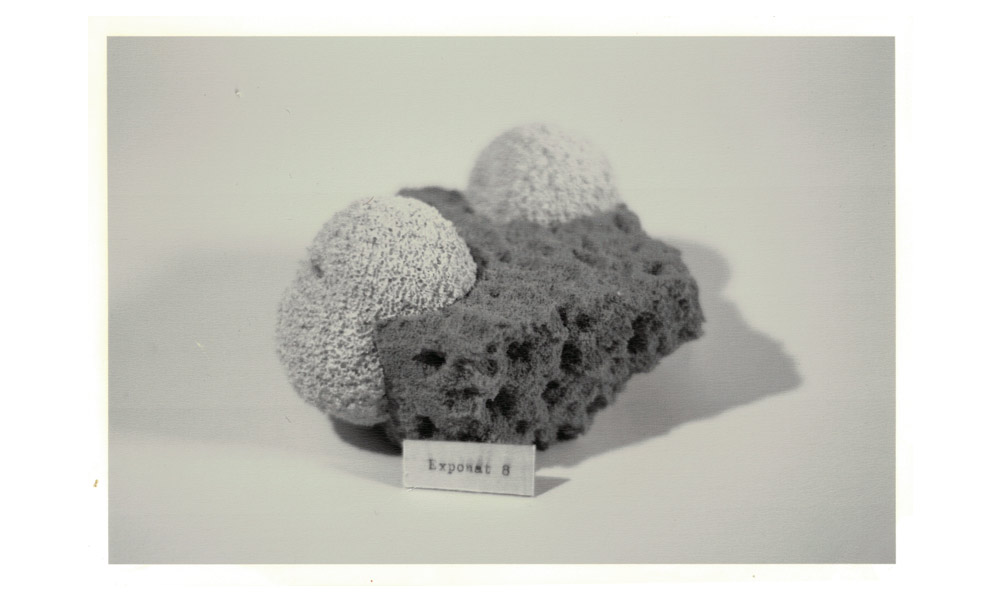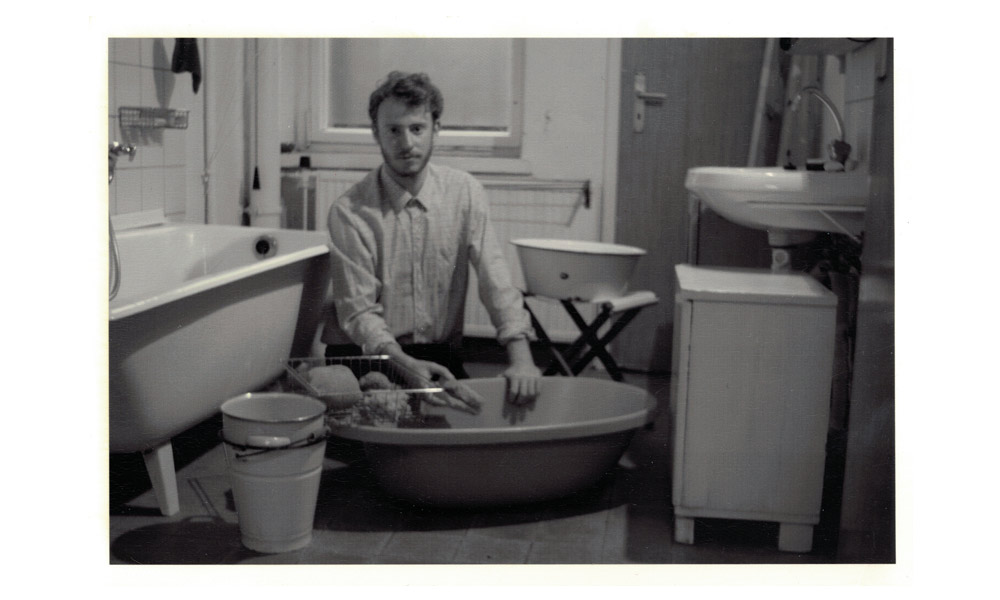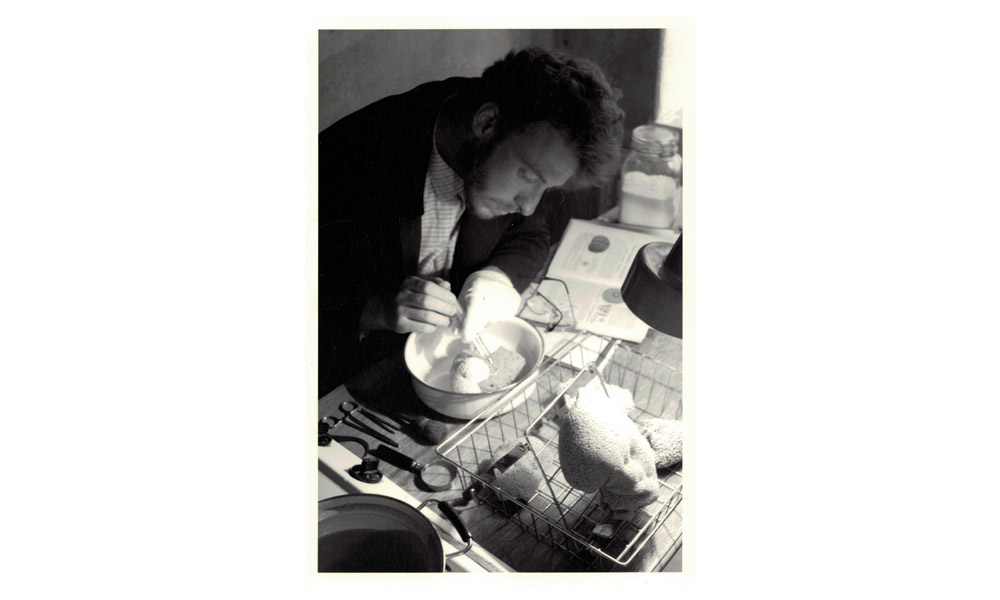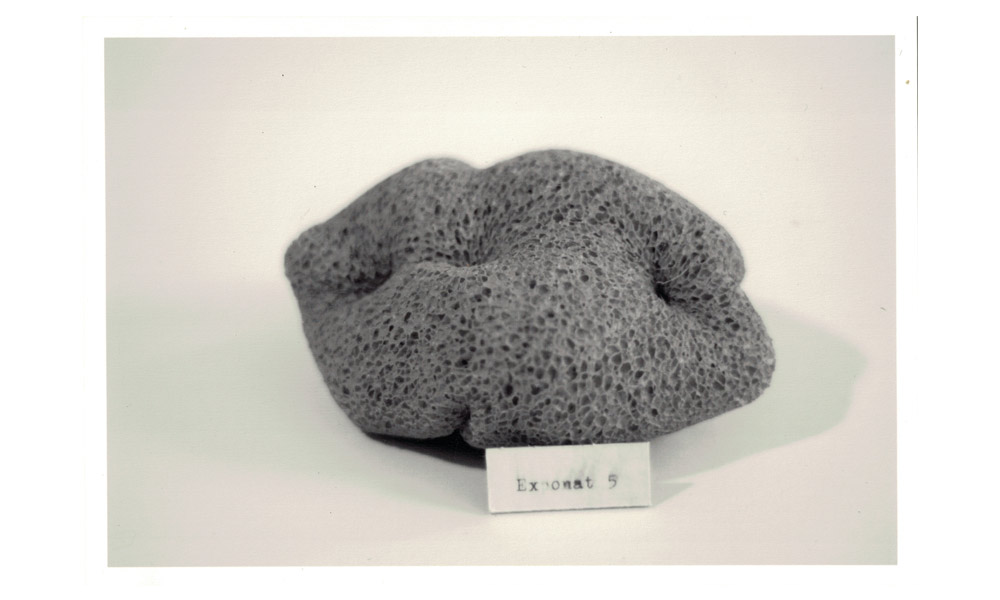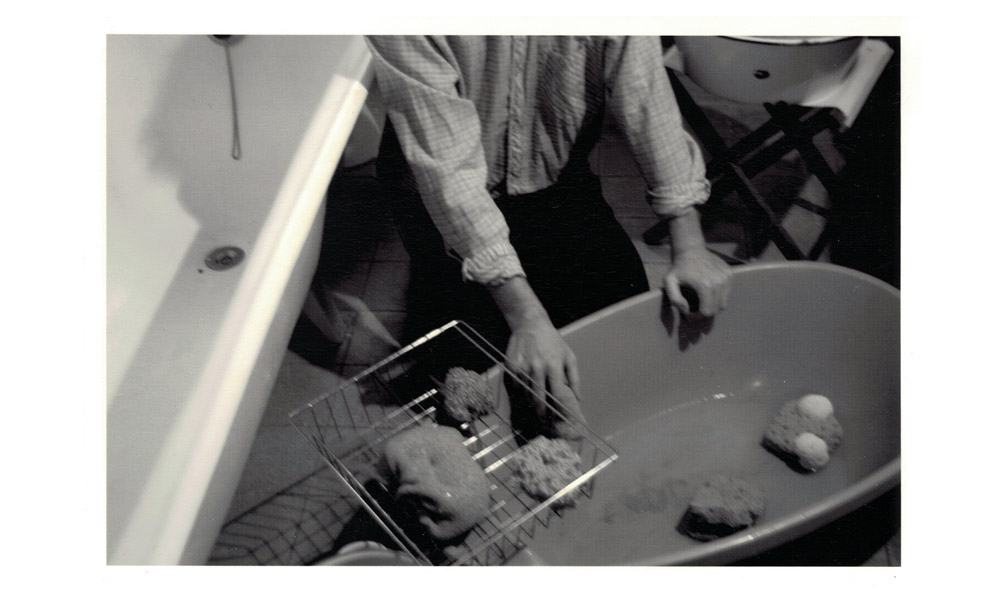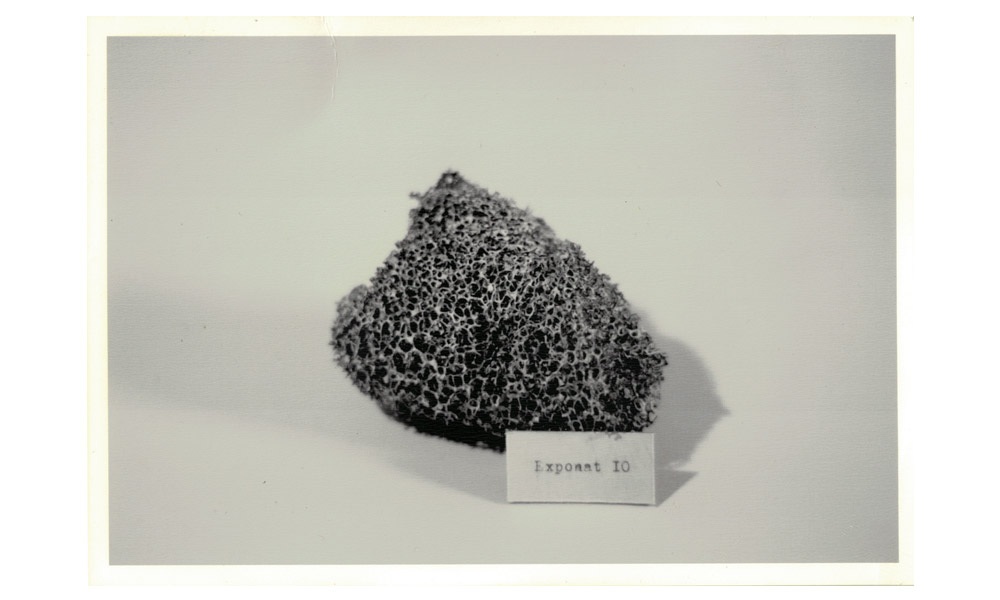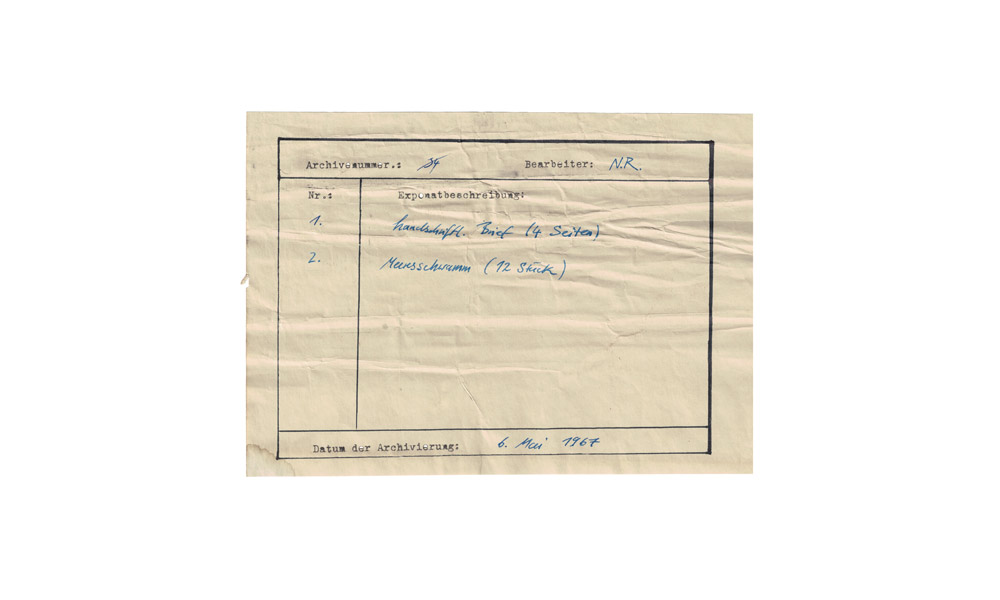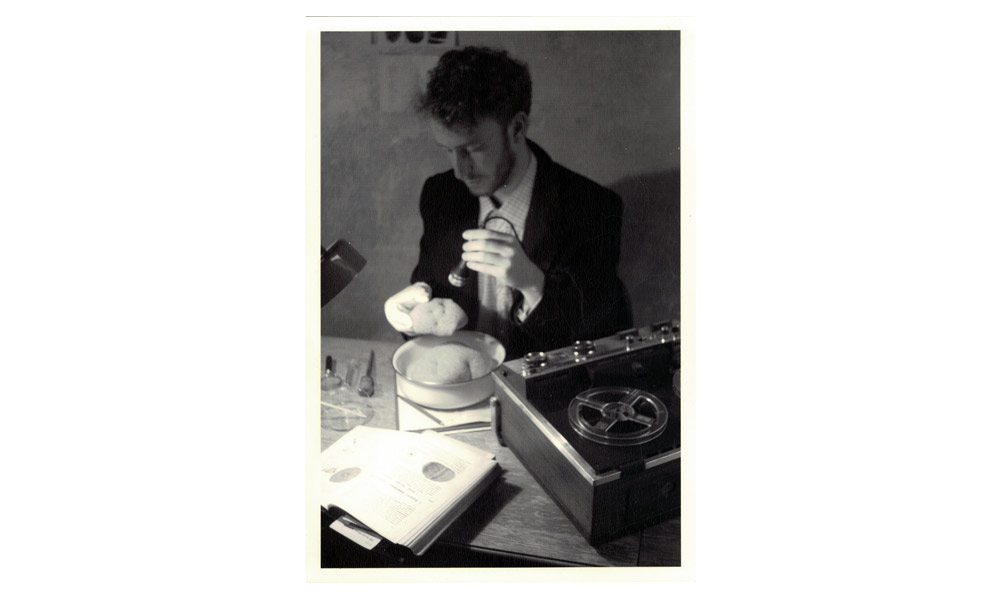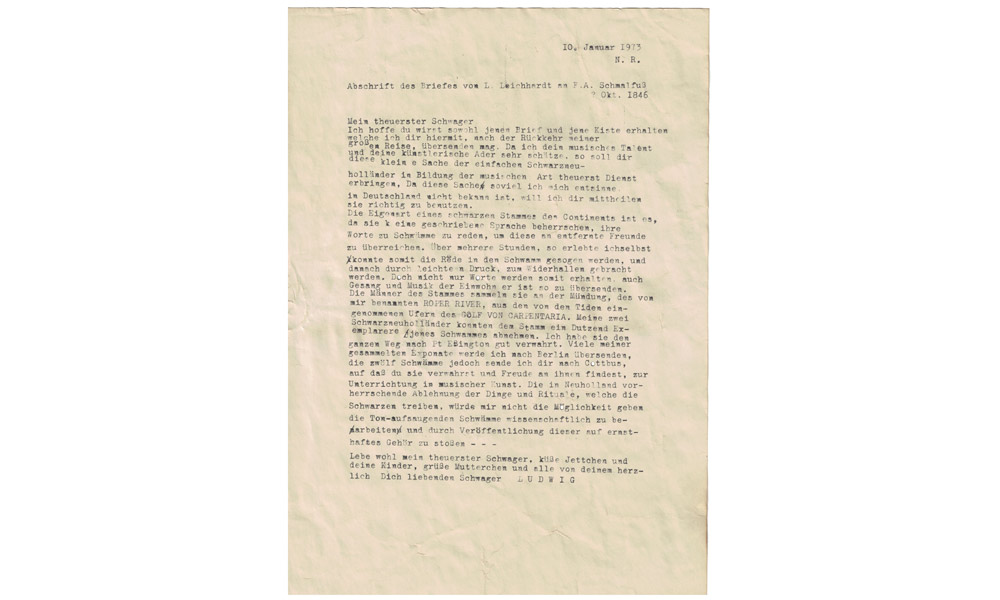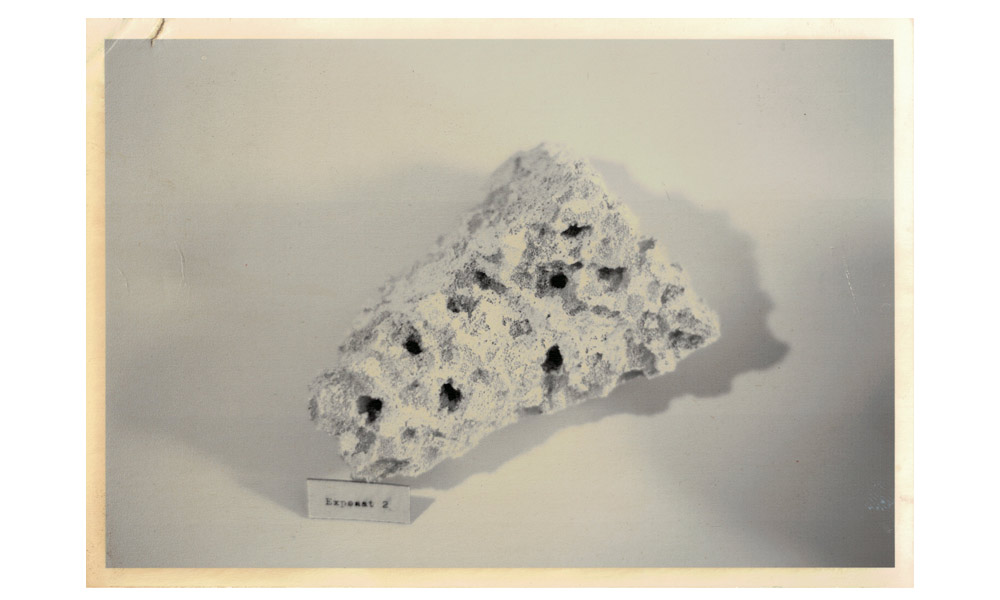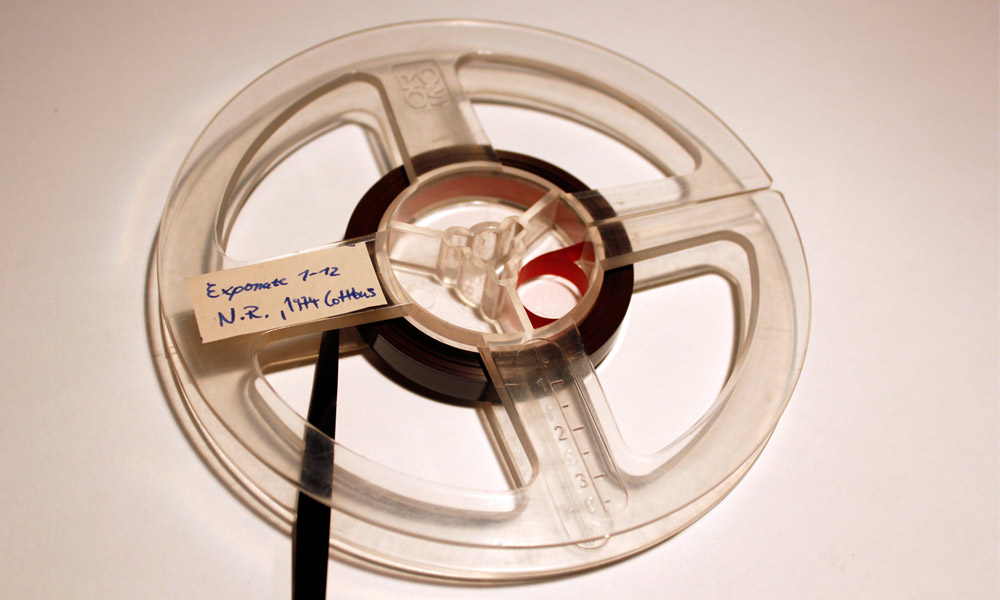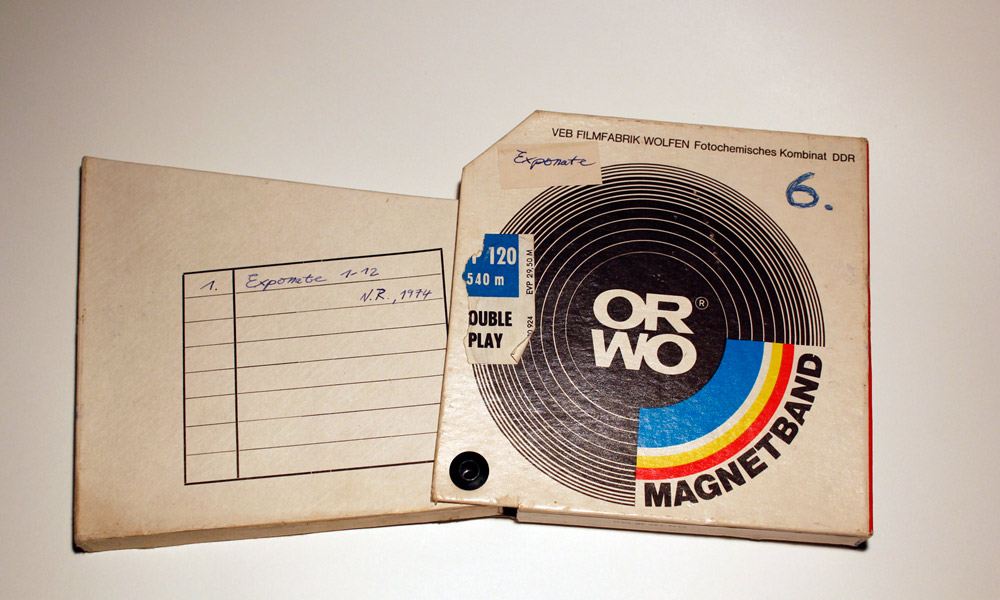the sounding sponges – examination of an inheritance
From 1967 to 1974, N. R., a hitherto unknown scientist, has made treatment of the 1846 drafted inheritance of the famous german explorer of Australia Ludwig Leichhardt to his brother-in-law F. A. Schmalfuß, that named inheritance survived only in its altered condition.
As recently as in 2006 and 2017 Alexander Rex recovered the treated inheritance of N. R. in the archive of Cottbus. For the posterity N. R. left behind an expansive photographic documentary of his work and portraits of twelve sponges, a type-writer transcription of a lost letter from Leichhardt to his brother-in-law, three sponges from the sea and a fragmentary tape-recording of the sound soaking sponges.
Recordings of the N. R. available exhibits 1 – 12 (remained incomplete, exhibit 10 – 12 is missing):
The tape was recorded in 1974, though the sounds reproduced by the sponges on this recording at least date back as early as the year 1846. Therefore this recording supposed to be the oldest surviving sound recording in human history.
For a period of almost twelve years now, Alexander Rex is researching the sounding sponges at the archive of Cottbus, different locations in Australia and at various libraries all over Europe. In that time he compiled an almost knotless theory of the biological mechanism of the sound soaking sponges. First of all by using the reference of the german historian and recording-researcher Herbert Jüttemann mentioned in his book „Phonographen und Grammophone“ (1979) of an 1632 discovered australian tribe, that were using sponges for long distance comunication, that originaly was published in the „le courrier veritable“ stored today in the Bibliothèque nationale de France. Another main source is the text of the japanese Hexactinellid-researcher Isao Iijima, whose thesis only survived in the review of his doctoral supervisor Dr. Rudolf Leuckart. His thesis is focused on the sound-reproducing defense mechanism of an unclassified pacific tideland sponge species.
2017

